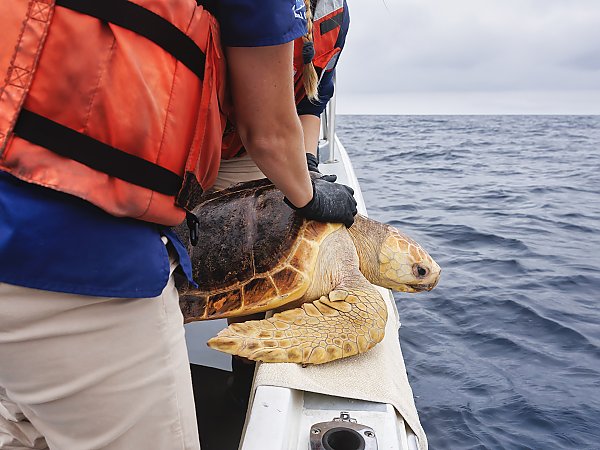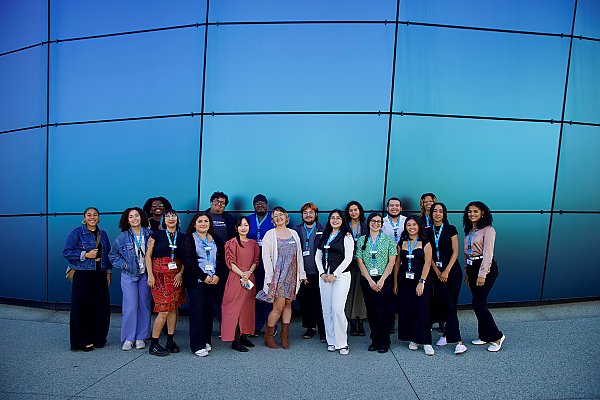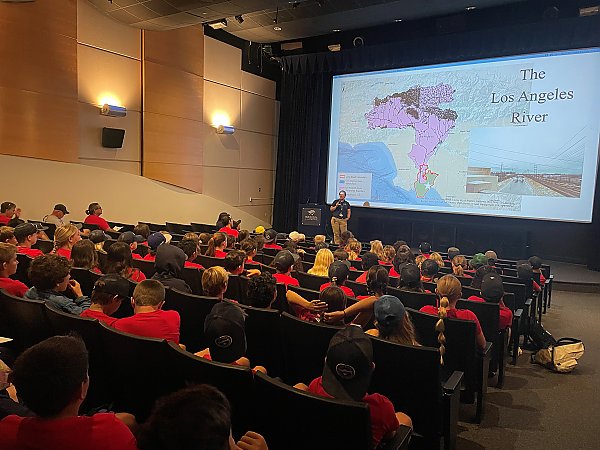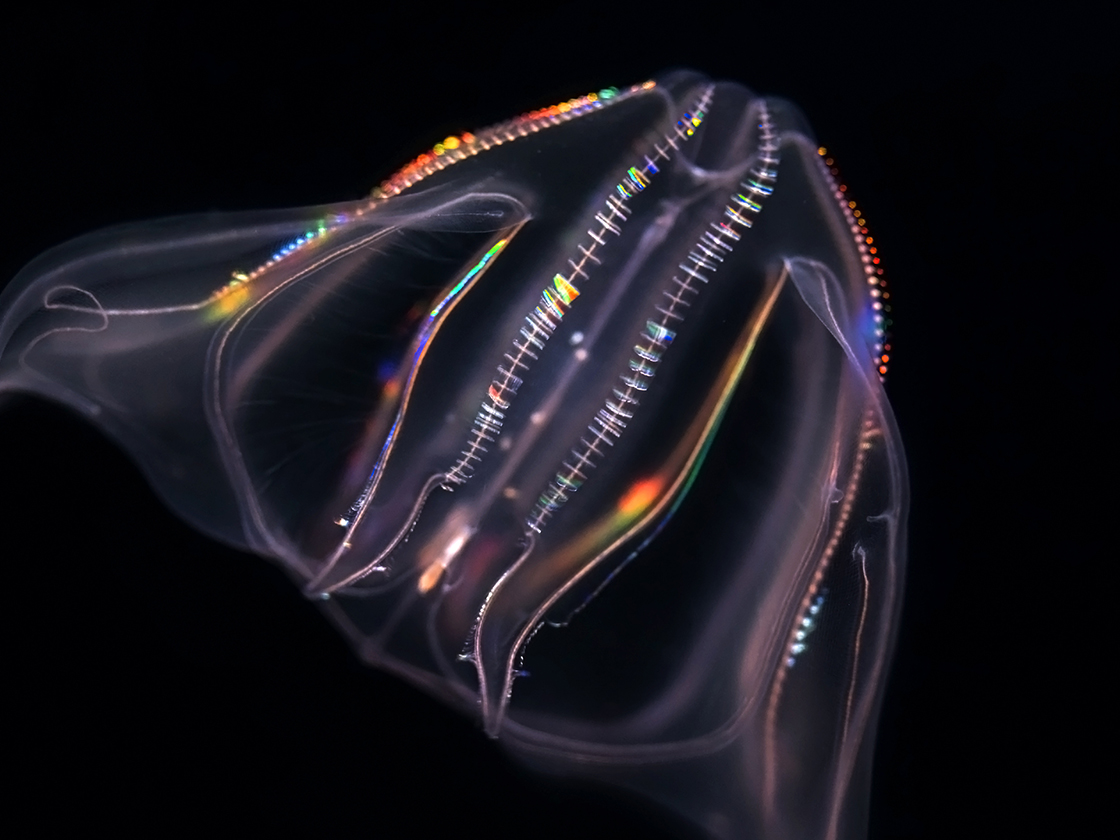Successful Spawning and Cross-Fertilization Bring Hope for the Critically Endangered Sunflower Sea Star
Aquarium of the Pacific, Birch Aquarium at Scripps, California Academy of Sciences, San Diego Zoo Wildlife Alliance (SDZWA), Sunflower Star Laboratory and partners continue work to save this species from extinction.
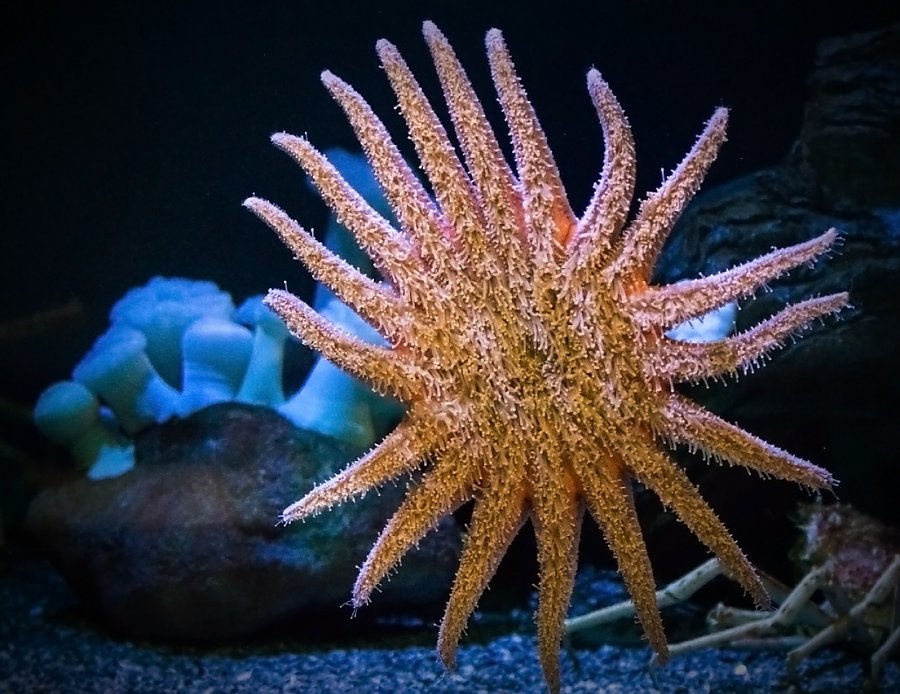
February 26, 2024
La Jolla CA, (Feb. 26, 2024) – Love is in the water for the critically endangered sunflower sea star as a team in California successfully spawned and cross-fertilized gametes from a male and a female, resulting in fertile eggs. This success marks another incredible step forward in an ongoing collaborative effort to save the species from extinction.
“It has been an amazing few years of collaborating and learning that led to this spawning. We have a huge team behind us, both national and international, working towards the conservation of the sunflower sea star. This is a milestone moment for zoos and aquariums and the SAFE program. The future of the sunflower sea star just got a little brighter,” said Jenifer Burney, Aquarium of the Pacific senior aquarist and co-chair of the Association of Zoos and Aquariums (AZA) SAFE (Saving Animals from Extinction) Sunflower Sea Star Program.
This advancement took place at Birch Aquarium at Scripps Institution of Oceanography at UC San Diego, where their experts were joined by partners from the Aquarium of the Pacific, California Academy of Sciences, San Diego Zoo Wildlife Alliance (SDZWA) and Sunflower Star Laboratory.
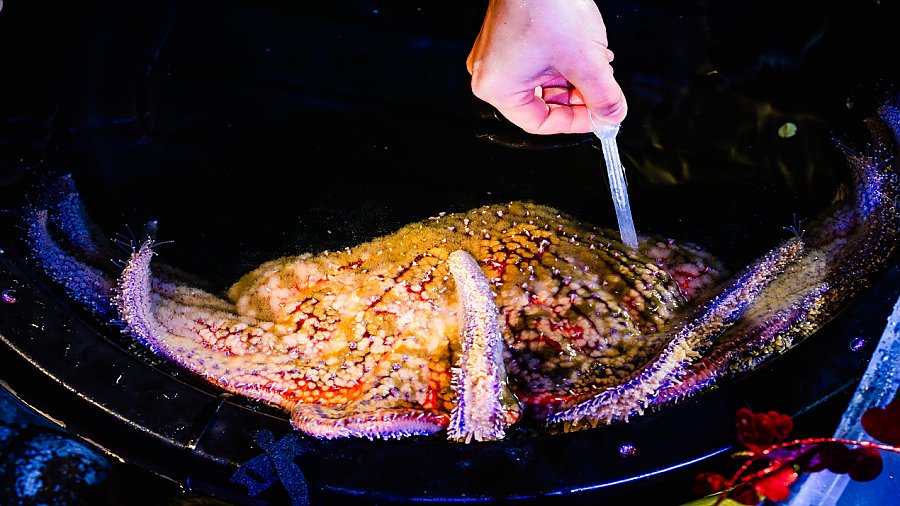
Team collects eggs from a female Sunflower Star at Birch Aquarium. Credit: Birch Aquarium at Scripps
The team used three different sperm samples from the same male to fertilize the eggs. Through this approach, the team can identify optimal sperm storage techniques to enhance the chances of successful egg fertilization in future attempts.
- Fresh sperm from a male sunflower star at Birch Aquarium
- -80 sperm — frozen sperm stored in minus 80 C freezer
- Cryopreserved sperm stored in the SDZWA’s Frozen Zoo
Each sample yielded fertilized eggs, marking a monumental advancement in the collective endeavor to bolster the population and genetic diversity of sunflower stars in accredited zoos and aquariums.
Some fertilized eggs remained at Birch Aquarium, while the rest were transported to the Aquarium of the Pacific, California Academy of Sciences and additional partners throughout California. Each partner will leverage their expertise towards the goal of culturing these fertilized eggs to larvae and then adulthood.
This collaboration is part of the Association of Zoos and Aquariums (AZA) SAFE Sunflower Sea Star Program, co-led by the Aquarium of the Pacific and Omaha’s Henry Doorly Zoo & Aquarium. It also contributes to a comprehensive multi-faceted, multi-partner “Roadmap to Recovery” to help accelerate the recovery of this species along the West Coast.
Sunflower stars have been hit hard by sea star wasting disease that’s swept across the West Coast for the past decade. It’s estimated that more than five billion sunflower stars have died from this disease. Efforts like this are one of many to come, and this special star has a massive group working to save them and the ecosystems that depend on them.
